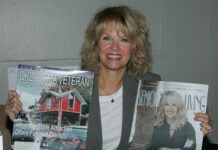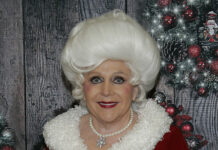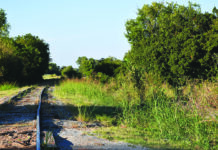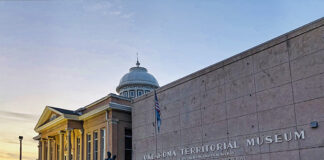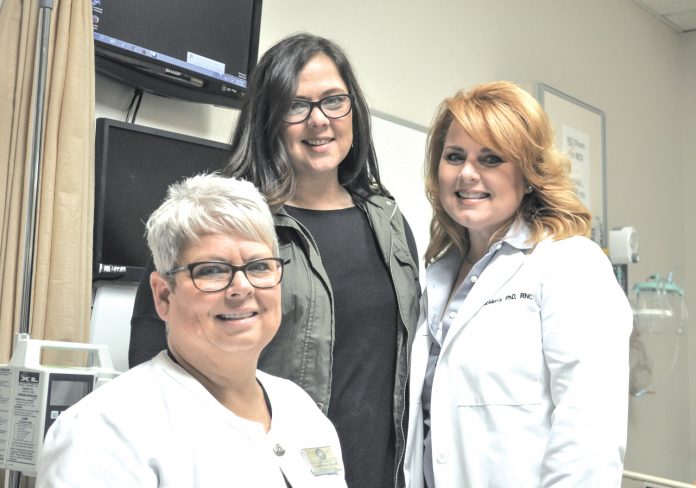
by Bobby Anderson, Staff Writer
Go into any health care facility in the metro and you’re bound to find at least one or two nurses trained by a unique trio of sisters that have quietly been inspiring the next generation for more than a decade now.
The Archer sisters – married and known as Kay Wetmore, Robin McMurry and Cindy Milam – have always been close. They began working in the family office supply business early in their middle school years.
And as each grew up and found their own paths into the nursing profession none are surprised they’re working together again as faculty for the Oklahoma City Community College nursing program.
Wetmore and McMurry came to OCCC 12 years ago.
At the time, McMurry was the CNO at Moore Medical Center when it was sold to Norman Regional.
She had a five-year-old and decided teaching was a better schedule.
“You can only individually touch so many patients but as a teacher I think that number is exponential,” McMurry said. “We daily see people when we go into the hospital that we taught. I think that’s really rewarding when they graduate and go on to be caregivers.”
“I think one of the most rewarding things I’ve ever done is teaching. It’s meaningful work.”
“Office supplies are good but when you go around in second grade and someone says ‘what do you want to be when you grow up’ no one wants to sell office supplies.”
Both Wetmore and McMurry have backgrounds in OB.
Milam joined her sisters eight years ago and oversees the clinical skills lab.
“We’ve always worked together,” Milam said. “I like the fact we are affecting future nurses and caregivers and trying to set the standard as high as possible for good, quality nurses.”
Not only did they choose to become nursing professors but they chose to teach students in arguably the toughest program in the metro.
Baccalaureate to Associate Degree Nurse Accelerated Pathway – or BADNAP – takes students with existing bachelor’s degrees and compresses all of the nursing processes into 10 consecutive months.
“They’re coming back at a time in their life where they’ve probably stopped working so the stakes are very high for these students and so is the anxiety,” McMurry said. “Sometimes it’s more important for us to nurture than it is to teach.”
“We say everyone gets one good cry in BADNAP. But students need to feel like they’re in an environment where we care about them.”
“It’s the hardest way to get a nursing degree and there’s so much at stake when they come to us.”
BADNAP grad Nick Hargis remembers that initial meeting with the feisty McMurry.
“Robin walked up to me and said ‘I can turn you into a nurse in 10 months,’” remembers Hargis, now an ICU nurse at SSM Health St. Anthony. “I thought it was a nice offer, but it was actually a command.”
Graduate Emerson Oden said he was constantly amazed at how much the sisters would pour into students.
“Those sisters could be making way more money in nursing by doing other things, but they’ve decided to dedicate an incredible amount of their time, energy, and sanity towards making us into nurses,” he said. “(BADNAP) was equal parts caffeine, smarts, encouragement and butt whoopins.”
It’s how the Archer girls were raised.
After their father, Jim, passed last November, the sisters were instrumental in helping make sure future nursing students would always have help from their family at OCCC.
A scholarship was established by their mother, Judy Archer, and the four daughters. Sister Chris Eskew is a librarian at a Yukon elementary school.
OCCC Nursing students now benefit from the endowed Jim & Judy Archer and Ed & Eva Pope Nursing Scholarship, currently valued at more than $111,000.
There are eight nurses in the Archer family, and four of them started their training at OCCC. Those eight nurses have earned two master’s degrees, a PhD and one doctor of nursing practice degree.
Their specialties include labor and delivery, education, pediatrics, surgery, intensive care, emergency medicine, oncology, community health and adult and pediatric sexual assault forensic nursing.
Eskew, the librarian, also earned her master’s degree.
“It leaves a legacy,” Wetmore said. “It not only leaves a legacy in the healthcare profession by creating more nurses it also leaves a legacy within those individual families because we’re affecting their ability to support their families in a way that’s flexible and workable.”
“When you only have to do three 12’s a week you can be involved in your children’s lives.”





